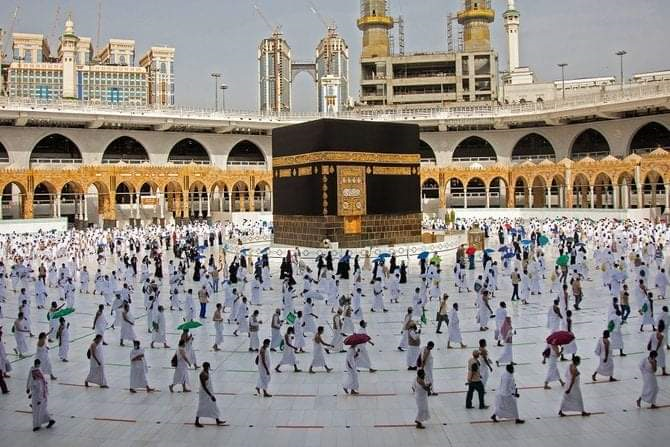By Theresa Kef Sesay
The outbreak of the coronavirus pandemic really caused certain dislocations and one is preventing most Muslims all over the worked to perform the pilgrimage to the Holy land of Mecca which forms part of one of the five pillars of Islam.
However, despite the restriction seven Sierra Leoneans were amongst those selected to take part in this year’s downscaled Hajj. The seven are students from three universities in the Kingdom of Saudi Arabia: 4 from the Islamic University in Madinah, 2 from Imam University in Riyadh and 1 from Abha in the south of the country.
After the completion of the Hajj, three (3) of the Sierra Leonean pilgrims expressed the view: “For us chosen by Allah to be part of this year’s hajj, we used the opportunity as Sierra Leoneans to ask our Creator to continue to show His Infinite Mercy on Sierra Leone and shower His blessings in the form of Peace, Stability, Unity, Progress and Prosperity in the West African Nation.”
According to a list of West African pilgrims there were; 10 Nigerians, 7 Ivoirians, 7 Ghanaians, 6 Liberians, 6 Senegalese, 5 Malians, 3 Gambians, 3 Bissau Guineans, 2 Beninese and 2 Guineans. They were all part of the pilgrims selected from West African nations, majority of whom are students in different universities across Saudi Arabia who have never performed the Hajj before.
Saudi authorities initially said only 1,000 pilgrims residing in the Kingdom would be permitted for the hajj, but media reports later say up to 10,000 are to be allowed to take part in this year’s ritual, compared with 2019’s gathering of some 2.5 million from around the world. The number was dramatically down scaled due to the coronavirus pandemic that barred millions of international pilgrims for the first time in modern history.
One-third of the attendees this year, according to reports, were Saudi security personnel and medical staff. The other two-thirds were foreigners from 160 different countries living in Saudi Arabia. In other words, 70 percent of the pilgrims were foreigners residing in the kingdom, while the smaller number is Saudi citizens.
Those chosen for the Hajj were selected after applying through an online portal, and required to be between the ages of 20 and 50, with no terminal illnesses and showing no symptoms of the coronavirus. Preference was given to those who have not performed the Hajj before.
Reports also say that, pilgrims were tested for the coronavirus, given wristbands that connect to their phones which monitor their movement. Authorities say that pilgrims who performed Hajj this year had undergone a rigorous selection process and went through periods of self-isolation before arriving in the holy sites. They were reportedly quarantined after their arrival and also required to quarantine for a week after the conclusion of the Hajj.
Makkah was sealed off for months ahead of the Hajj, and the smaller year-round Umrah pilgrimage was suspended and still in suspension. International media were not permitted to cover this year’s Hajj from Makkah. Instead, Saudi Government broadcast live footage from the Grand Mosque showing limited numbers of pilgrims, moving several feet apart, circling the cube-shaped Kaaba in the first rituals of the Hajj.
Rather than standing and praying shoulder-to-shoulder in a sea of people, pilgrims observed the social distancing guideline throughout the Hajj. They moved in small groups of 20 from one holy site to another. It is the first time in nearly a century of Saudi rule over Makkah that people from outside the kingdom did not take part in the five-day pilgrimage.
This year’s hajj was scaled down and micromanaged in what Saudi authorities called an “exceptional pilgrimage” for exceptional times. “Reducing the number of pilgrims for Hajj 2020 was a necessary precaution to make sure the virus does not spread while there still isn’t a vaccine,” the Saudi Minister of Hajj and Umrah, Dr. Muhammad Saleh bin Taher Benten, said in a statement a couple of weeks ago.
According to the Saudi Health Ministry, the country has recorded more than 275,000 cases with nearly 3,000 deaths, one of the largest outbreaks in the Middle East.
The country only lifted a nationwide lockdown last May. Tough restrictions to tackle the spread of infections came into force in March, including 24-hour curfews in most towns and cities.





